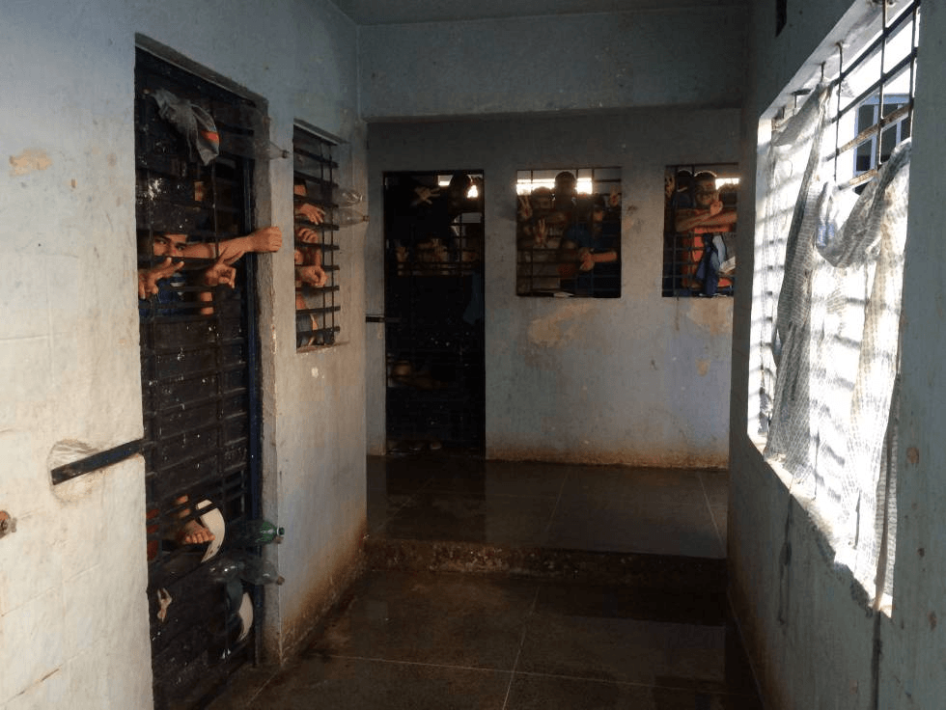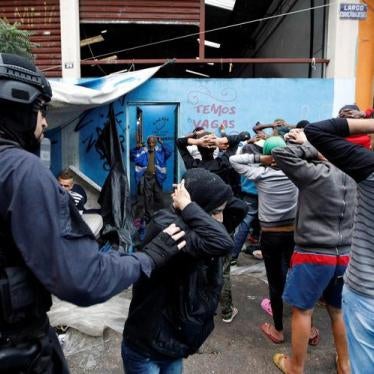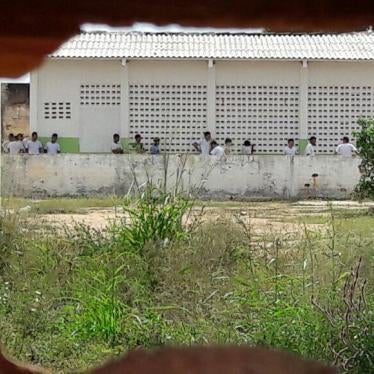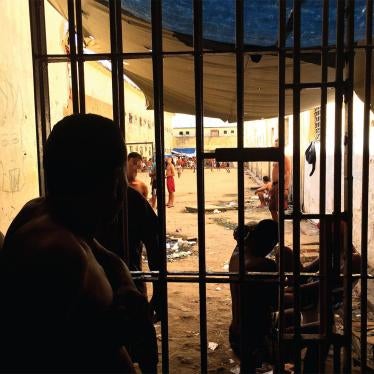When a child makes the mistake of breaking a law, the state needs to be especially careful in meting out punishment – out of sheer humanity, and because the chances of rehabilitation are so much higher in someone so young. And indeed Brazilian law carefully governs the punishment of children. The law, though, is often ignored, and the results can be deadly.
In Pernambuco, two children were killed on June 5 in a juvenile detention unit built for 98 that held 174. According to the National Council of Human Rights, 44 children in confinement have been killed in Pernambuco since 2012.
That is nine children dead in the space of two days.
Last October, I interviewed children in the state of Ceará who were only let out of their “rooms” –cells, really– if they had visits. They even ate inside, and had access to absolutely none of the educational or recreational activities that the law demands. The National Mechanism for Preventing and Combating Torture, Cedeca Ceará –a local group–, and Human Rights Watch have documented dozens of cases of mistreatment and torture of children by police or the units´ security staff in the last two years. None that have been prosecuted, as far as we have been able to determine.
In a juvenile detention unit in São Paulo, staff routinely beat children and kept them in isolation, according to reports the public defender´s office sent in 2015 and 2016 to the Inter-American Commission of Human Rights. The commission found that nobody was disciplined, let alone prosecuted, for abusing the confined children.
In a joint letter following the June 3 killings in Paraiba, thirty-five juvenile justice judges from the state said that the state government’s negligence was responsible for the killings. Paraiba’s government responded to the note pointing fingers at the judges, who, it said, have “dozens” of release requests pending before them, including cases of children detained longer that the maximum term established by law, which is three years.
Both the state government and judges are behaving irresponsibly.
The state failed in its obligation to protect the children in its custody; and the judges are keeping children in detention who should not be there. The judges´ own note says some of the children are confined for non-violent infractions such as theft and drug offenses.
International and Brazilian law say that keeping children in detention is to be an exceptional measure. Under Brazilian law, children can only be confined if they commit illegal acts “through grave threat or violence against people,” are repeat offenders of serious illegal acts or have repeatedly violated previous penalties. Brazil´s Superior Court of Justice has ruled that drug offenses alone should not be grounds for confinement.
The government is within its rights to investigate and punish violations of the law, including those carried out by children. But Brazilian law provides for a range of measures other than confinement, from warnings to placement in semi-open facilities –in which children participate in outside activities during the day. Studies from the United States show that community-based programs are more effective at reducing recidivism–and thus reducing crime–than locked facilities like the ones that in Brazil are euphemistically called “socio-educational” units.
Brazil´s Congress should be coming to the children’s defense with bills to fix these problems, but instead is working on proposals that would only aggravate them, by increasing confinement time for children to up to 10 years.
That´s 10 years locked up in units where children may not have access to education, can be recruited by gangs, and can be at serious risk of mistreatment and death. And somehow they’re supposed to come out rehabilitated.
The reform that Brazil´s juvenile detention system needs is simply to make authorities comply with the law —and prosecute those responsible for abuses— so that children have a real chance to turn their lives around.










